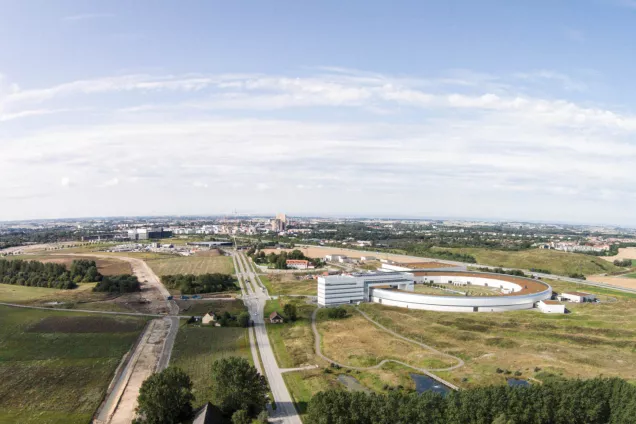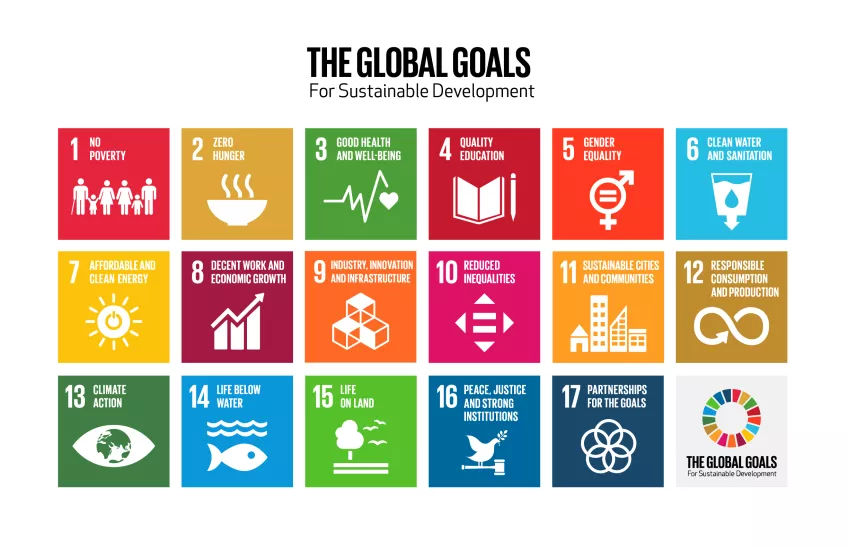What is sustainability?
The concept sustainable development refers to having good social living conditions, where our human existence and societal accomplishments do not deplete the functions of ecosystems.
Brief history of sustainable development
In the late 1980's, the UN report “Our Common Future”, also known as the Brundtland Report, came out. It defines sustainable development as “development that meets the needs of the present without compromising the ability of future generations to meet their own needs”. This has become a leading principle for the work of the United Nations and an overarching goal for Swedish politics. The concept considers the three dimensions of ecological, social and economic sustainability, which, when interacting and supporting each other, shall lead to sustainable development.
2015 was a year of two crucial global decisions. In September, the countries of the world agreed upon 17 global goals for economically, socially and environmentally sustainable development, and to act to achieve them by 2030. The goals ultimately aim for ending poverty, fighting inequality and injustice, promoting peace and addressing the urgency of climate change. These global challenges are closely linked, and a transition to a more sustainable society requires efforts in several areas. The goals are interconnected and must be approached collectively. In December of the same year, a new global climate agreement was signed in Paris, where world leaders decided to work together to limit global warming to well below two degrees and strive to limit it to 1.5 degrees. The ambitions are to increase gradually, and an important part of the agreement is that industrialized countries provide support to developing countries.
Ecological sustainability is often described as setting the framework or forms the basis of the other two sustainability components: social and economic sustainability. This dimension is about the earth's ecosystem and maintaining its desired functions in the long term: natural resources to produce food and energy, the provision of clean water, climate regulation and recreation.
Climate change affects the conditions for living on the planet. The countries of the world have signed the Paris Agreement, with the aim of limiting global warming by reducing greenhouse gas emissions.
In Sweden, the Parliament has decided that the work towards ecological sustainability shall be guided by the so-called environmental goal system, which consists of a generational goal, sixteen environmental quality goals and twenty-four milestones. The generation goal is a targeting goal for environmental policy and environmental work at all levels in society and aims to ensure that the conditions for solving environmental problems are in place within a generation. The environmental quality objectives describe the sustainable state of the environment that the environmental work is to lead to. The milestones are usually called "steps on the way" to achieve the generation goal and one or more environmental quality goals.
Social sustainability concern people's living conditions in society, such as health, security, education, justice and the exercise of power, as well as the opportunities to improve them. In addition to the individual perspective, it is about how these living conditions are distributed between groups of people. The basis for a sustainable society is a fair distribution of resources and economic, social and political influence in society. It is based on the principle of equal rights and opportunities for all, regardless of gender, ethnicity, religion, functional variation, age and other status. Human rights are fundamental, and several of the UN's global goals show what the concept of social sustainability entails.
The meaning of economic sustainability was originally interpreted in essentially two broadly generalizing ways. One approach was that economic development is a means of achieving ecological and social sustainability without affecting them negatively. The other approach was that economic sustainability is equated with economic growth that can take place at the expense of the other two sustainability components.
Today, there is a broader line of reasoning where "green growth" and "green economy" are key concepts. Green growth is about investments in, for example, environmental technology, also from a traditional economic perspective, driving economic development in general and therefore increasing the room for maneuver for sustainable development at all levels. A green economy is an economic system that results in improved human living conditions while reducing environmental risks and ecological pressures. A green economy has low carbon emissions, uses resources efficiently, and is socially inclusive. Circular economy is a concept that shows the importance of reusing natural resources in a sustainable way. The opposite is linear production and consumption where goods eventually become waste, which leads to an unsustainable use of natural resources.
We are the first generation that can end poverty, the last that can end climate change.
Former UN Secretary-General Ban Ki-moon
UN Sustainable Development Goals
World leaders have committed themselves to 17 global goals by 2030. These goals have the power to create a better world by 2030, by:
- ending extreme poverty
- reducing inequalities and injustices in the world
- promoting peace and justice
- addressing the urgency of climate change

The role of research
Research plays a crucial role in advancing the knowledge front on sustainability issues. Research can contribute both with problem formulation, possible solutions and a critical approach to society's decisions. Read more about the sustainability research at Lund University.

Sustainability in the organisation
Read more about how Lund University works with sustainability in the organisation, for example with a sustainability strategy and sustainability plan.


